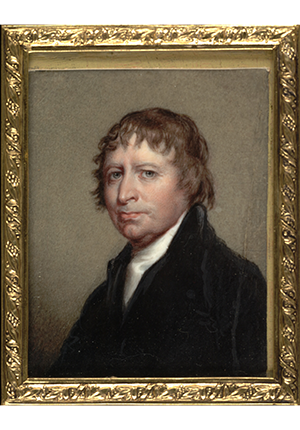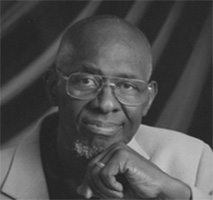Historic Document
The Essex Result
Theophilus Parsons | 1778

Smithsonian American Art Museum, Gift of Mrs. Henry L. Milmore
Summary
With independence came the need to draw up new American governments. Most states wrote their constitutions in 1776, but the process was delayed in a few states, including Massachusetts. When its legislature—the General Court—finally proposed a constitution to the state’s towns in 1778, it was rejected. Those who voted against it objected to the proposed constitution’s content, but also the fact that it had been drafted by a sitting legislature rather than a special convention. Nowhere was the analysis of the constitution’s defects more incisively drawn than The Essex Result. To conduct an initial evaluation, a collection of Essex County towns convened a county convention to assess the constitution. The Essex Result summarized its proceedings. Theophilus Parsons, a young lawyer from Newburyport who later would serve as Chief Justice of the Supreme Court of Massachusetts, is credited as the document’s author. Among The Essex Result’s most striking arguments was its defense of bicameralism. The constitutions written in 1776 vested enormous power in their lower houses of assembly, with Pennsylvania’s going so far as to do away with its upper house entirely. The Essex Result reflected an alternative perspective, one that viewed popular legislative authority with equal suspicion to other kinds of power and would undergird the next constitution to be proposed in Massachusetts in 1780, which this time would be approved.
Selected by

William B. Allen
Emeritus Dean of James Madison College and Emeritus Professor of Political Science at Michigan State University

Jonathan Gienapp
Associate Professor of History at Stanford University
Document Excerpt
A committee was then appointed to attempt the ascertaining of the true principles of government, applicable to the territory of the Massachusetts-Bay; to state the non-conformity of the constitution proposed by the Convention of this State to those principles, and to delineate the general outlines of a constitution conformable thereto; and to report the same to this Body. …
The committee also beg leave to observe, that the constitution proposed for public approbation, was formed by gentlemen, who, at the same time, had a large share in conducting an important war, and who were employed in carrying into execution almost all the various powers of government. . . .
All men are born equally free. The rights they possess at their births are equal, and of the same kind. Some of those rights are alienable, and may be parted with for an equivalent. Others are unalienable and inherent, and of that importance, that no equivalent can be received in exchange. Sometimes we shall mention the surrendering of a power to controul our natural rights, which perhaps is speaking with more precision, than when we use the expression of parting with natural rights—but the same thing is intended. Those rights which are unalienable, and of that importance, are called the rights of conscience. We have duties, for the discharge of which we are accountable to our Creator and benefactor, which no human power can cancel. What those duties are, is determinable by right reason, which may be, and is called, a well informed conscience. What this conscience dictates as our duty, is so; and that power which assumes a controul over it, is an usurper; for no consent can be pleaded to justify the controul, as any consent in this case is void. The alienation of some rights, in themselves alienable, may be also void, if the bargain is of that nature, that no equivalent can be received. Thus, if a man surrender all his alienable rights, without reserving a controul over the supreme power, or a right to resume in certain cases, the surrender is void, for he becomes a slave; and a slave can receive no equivalent. Common equity would set aside this bargain. . . .
It has been observed, that each individual parts with the power of controuling his natural alienable rights, only when the good of the whole requires it, he therefore has remaining, after entering into political society, all his unalienable natural rights, and a part also of his alienable natural rights, provided the good of the whole does not require the sacrifice of them. Over the class of unalienable rights the supreme power hath no controul, and they ought to be clearly defined and ascertained in a BILL OF RIGHTS, previous to the ratification of any constitution. The bill of rights should also contain the equivalent every man receives, as a consideration for the rights he has surrendered. This equivalent consists principally in the security of his person and property, and is also unassailable by the supreme power: for if the equivalent is taken back, those natural rights which were parted with to purchase it, return to the original proprietor, as nothing is more true, than that Allegiance and protection are reciprocal. …
Yet, when we are forming a Constitution, by deductions that follow from established principles, (which is the only good method of forming one for futurity,) we are to look further than to the bulk of the people, for the greatest wisdom, firmness, consistency, and perseverance. These qualities will most probably be found amongst men of education and fortune. From such men we are to expect genius cultivated by reading, and all the various advantages and assistances, which art, and a liberal education aided by wealth, can furnish. From these result learning, a thorough knowledge of the interests of their country, when considered abstractedly, when compared with the neighbouring States, and when with those more remote, and an acquaintance with its produce and manufacture, and its exports and imports. All these are necessary to be known, in order to determine what is the true interest of any state; and without that interest is ascertained, impossible will it be to discover, whether a variety of certain laws may be beneficial or hurtful. …
Let all their respective excellencies be united….It is not therefore to be understood, that all the men of fortune of the present day, are men of wisdom and learning, or that they are not. Nor that the bulk of the people, the farmers, the merchants, the tradesmen, and labourers, are all honest and upright, with single views to the public good, or that they are not. In each of the classes there are undoubtedly exceptions, as the rules laid down are general. The proposition is only this. That among gentlemen of education, fortune and leisure, we shall find the largest number of men, possessed of wisdom, learning, and a firmness and consistency of character. That among the bulk of the people, we shall find the greatest share of political honesty, probity, and a regard to the interest of the whole, of which they compose the majority. That wisdom and firmness are not sufficient without good intentions, nor the latter without the former. The conclusion is, let the legislative body unite them all. The former are called the excellencies that result from an aristocracy; the latter, those that result from a democracy. …
But the legislative power must not be trusted with one assembly. A single assembly is frequently influenced by the vices, follies, passions, and prejudices of an individual. It is liable to be avaricious, and to exempt itself from the burdens it lays upon its constituents. It is subject to ambition, and after a series of years, will be prompted to vote itself perpetual. The long parliament in England voted itself perpetual, and thereby, for a time, destroyed the political liberty of the subject. Holland was governed by one representative assembly annually elected. They afterwards voted themselves from annual to septennial; then for life; and finally exerted the power of filling up all vacancies, without application to their constituents. The government of Holland is now a tyranny though a republic.
The result of a single assembly will be hasty and indigested, and their judgments frequently absurd and inconsistent.




